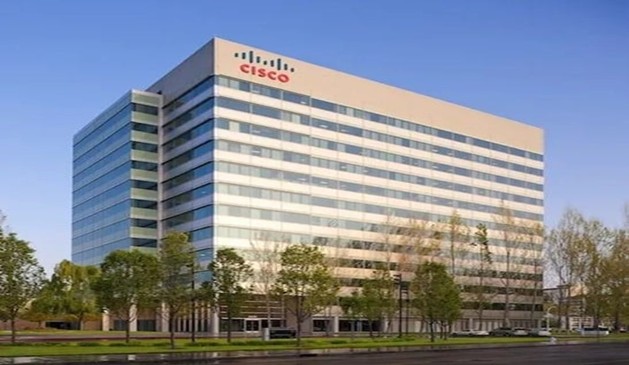Class 1 : Introduction to Cisco and Its Certifications
Introduction
Welcome to your CCNA Self-Study Tutorial! Before diving into CCNA topics, let me first introduce you to Cisco—one of the leading pioneers in networking technology. We will explore Cisco as a company, its diverse range of products and services, and its globally recognized certification programs. This foundational understanding will provide valuable context for your networking journey.
What is Cisco?
Cisco Systems, Inc. is an American multinational technology company specializing in networking hardware, software, and telecommunications equipment. Founded in 1984 by Leonard Bosack and Sandy Lerner, Cisco has become a global leader in networking and IT infrastructure.
The Love Story of Leonard Bosack & Sandy Lerner and the Birth of Cisco
Every great company has a story, but Cisco’s story is special because it began with love, passion, and a vision to connect the world. The journey of Leonard Bosack and Sandy Lerner is not just about technology—it’s about two brilliant minds coming together to solve a problem that would later change the way we communicate forever.
How It All Started: A Love Story at Stanford
In the early 1980s, Leonard Bosack and Sandy Lerner met at Stanford University.
- Leonard Bosack was working as a computer scientist in the Computer Science Department.
- Sandy Lerner was the Director of Computer Facilities at the Graduate School of Business.
Both of them were passionate about technology and networking. As they worked together, they fell in love, forming a strong partnership both professionally and personally.
At that time, Stanford University had a problem—computers in different departments couldn’t
communicate with each other because they used different networking protocols.
Bosack and Lerner wanted to fix this issue. They believed that all computers should be able to connect and share information seamlessly.
The Big Idea: Creating the First Multi-protocol Router
To solve this problem, the couple started working on a networking device that could connect computers, even if they used different protocols.
- They designed and built a multi-protocol router, a device that could bridge different networks and allow smooth communication.
- This invention was a breakthrough, as it laid the foundation for modern networking.
Once they saw that their idea worked, they realized its potential beyond Stanford. It could be used by businesses, universities, and institutions worldwide.
The Birth of Cisco Systems
In 1984, Leonard Bosack and Sandy Lerner founded Cisco Systems in San Jose, California.
- They named the company “Cisco”, inspired by San Francisco.
- The Golden Gate Bridge became the inspiration for their company’s logo.
- Their first product, the AGS router, became a game-changer in networking.
Cisco quickly became one of the biggest names in the tech industry, helping businesses and institutions connect their networks efficiently.
Cisco’s Impact on the World
What started as a simple project grew into a global tech giant. Thanks to the vision of Bosack and Lerner, Cisco played a major role in:
Expanding the Internet – Cisco’s routers helped build the internet as we know it today.
Connecting the World – Businesses, universities, and organizations could communicate easily.
Advancing Networking Technology – Cisco became a leader in enterprise networking, cybersecurity, and cloud computing.
Today, Cisco is a multi-billion dollar company and a pioneer in networking technology.
A Love Story That Changed Technology Forever
The journey of Leonard Bosack and Sandy Lerner proves that when two passionate minds come together, they can create something revolutionary. Their love for technology and innovation led to the birth of Cisco, a company that continues to shape the future of networking and the internet.

Leonard Bosack and Sandy Lerner
1986: Cisco launched its first commercial router, which supported multiple network protocols.
1990: The Company went public and quickly became a major player in networking.
1993-1996: Cisco expanded by acquiring several companies, improving its product portfolio.
2000s-Present: Cisco also shifted its focus from just hardware to cloud computing, cybersecurity, software-defined networking (SDN), and automation.
Today, Cisco dominates the networking industry, providing solutions for enterprises, service providers, data centers, and cloud computing environments.

Cisco headquarters building
Key Contributions of Cisco
- Invented the concept of multi-protocol routers, allowing different networks to communicate.
- Develops industry-standard switches, routers, firewalls, and wireless technologies.
- Provides enterprise networking solutions, cloud computing, cybersecurity, and network automation.
- Powers over 80% of the internet infrastructure worldwide.
- From routers and switches to cybersecurity and cloud solutions, Cisco remains a leader in networking technology.
- Its certifications and training programs empower IT professionals worldwide.
Cisco continues to drive innovations in SDN, network automation, and AI-driven networking.
Cisco has transformed the networking industry with its technological innovations, enterprise solutions, security advancements, and global networking infrastructure.
Why is Cisco Important in the Networking Industry?
Cisco has been a pioneer in networking technology and continues to shape the industry. Here’s why Cisco is important:
Market Leader – Cisco dominates the global networking market, used by enterprises, governments, and telecom providers.
Inventor of Key Networking Technologies – Many industry-standard protocols (like EIGRP, STP, HSRP) were developed by Cisco.
High-Quality Hardware & Software – Cisco’s products are known for their reliability and scalability.
Security & Innovation – Advanced security solutions for modern cyber threats.
Strong Community & Certifications – Cisco provides training and certifications (CCNA, CCNP, CCIE) to build networking careers.
Few Network Equipments manufacturing companies
- Cisco Systems, Inc. – A global leader in networking hardware, software, and telecommunications equipment.
- Juniper Networks – Known for its networking solutions, including routers, switches, and security products.
- Hewlett Packard Enterprise (HPE) – Offers a wide range of networking products, including switches, routers, and wireless solutions.
- Aruba Networks (a subsidiary of HPE) – Specializes in wireless and mobility solutions.
- Dell Technologies – Provides networking products, including switches and networking solutions.
- Ubiquiti Networks – Known for its wireless networking products, including access points and routers.
- Extreme Networks – Offers networking solutions, including switches and wireless products.
- Brocade Communications Systems (now part of Broadcom) – Formerly a networking solutions provider, Brocade was acquired by Broadcom.
- MikroTik – A Latvian company that produces networking equipment, including routers and wireless products.
- Arista Networks – Focuses on data center networking solutions, including switches.
- Netgear – Provides a variety of networking products for home and business use, including routers and switches.
- Huawei – A Chinese multinational company offering a wide range of networking and telecommunications equipment.
- Zyxel Communications – Specializes in networking solutions, including routers, switches, and security appliances.
- TP-Link – Known for its consumer and small business networking products, such as routers and switches.
- Fortinet – Primarily recognized for its cybersecurity solutions, including network security appliances.

If you want to build a career in networking, learning Cisco technologies is a must!
Some Cisco products
Cisco’s Main Products and Services
Cisco is a global leader in networking and IT solutions, offering a wide range of products and services across various domains.
Networking Solutions
– Routers & Switches – Core components for building networks. (e.g., Cisco ISR, Catalyst Switches)
– Wireless Solutions – Enterprise Wi-Fi access points and controllers. (e.g., Cisco Aironet, Meraki)
– Software-Defined Networking (SDN) – Network automation and management. (e.g., Cisco DNA Center)
Security Solutions
– Firewalls & VPNs – Protecting networks from threats. (e.g., Cisco ASA, Firepower)
– Endpoint Security – Protecting devices. (e.g., Cisco Secure Endpoint)
– Zero Trust Security & SASE – Secure Access Service Edge solutions.
Collaboration & Communication
– Unified Communications – IP telephony, video conferencing. (e.g., Cisco Webex, CUCM)
– Contact Center Solutions – Cloud-based customer support platforms.
Data Center & Cloud Solutions
– Servers & Hyperconverged Infrastructure – (e.g., Cisco UCS, HyperFlex)
– Cloud Networking & Security – Hybrid cloud solutions, SD-WAN.
Internet of Things (IoT) & Industrial Networking
– IoT Networking – Secure and scalable connectivity for smart industries.
– Edge Computing – Processing data closer to the source.
Cisco Certification & Training
– Cisco Certifications – CCNA, CCNP, CCIE, and other career certifications.
– Training & Learning Resources – Cisco Networking Academy, DevNet.

Overview of Cisco Certifications

Cisco offers multiple certification levels for networking professionals:
Associate-Level Certifications (Foundational Level)
CCNA (Cisco Certified Network Associate) – Covers networking basics, routing, switching, security, and automation.
DevNet Associate – Focuses on network automation and programming (Python, APIs).
CCNA (200-301) is the most popular certification at this level.
Professional-Level Certifications (Advanced Networking Skills)
CCNP Enterprise – Covers advanced routing, switching, and network automation.
CCNP Security – Focuses on firewalls, VPNs, and security policies.
CCNP Data Center – Deals with large-scale data center solutions.
CCNP Collaboration – Covers VoIP, video, and unified communications.
CCNP Service Provider – Focuses on ISP and carrier networks.
CCNP DevNet – Advanced network automation and software development.
CCNP certifications require a specialization exam (e.g., CCNP Enterprise requires ENCOR + ENARSI).
Expert-Level Certifications (Networking Experts & Consultants)
CCIE (Cisco Certified Internetwork Expert) – One of the toughest certifications in the IT industry.
CCDE (Cisco Certified Design Expert) – For network design experts.
CCIE Enterprise Infrastructure, CCIE Security, and CCIE Data Center are some of the most popular tracks.
Architect-Level Certification (Highest Level)
CCAr (Cisco Certified Architect) – The most prestigious Cisco certification for network architects.
Career Opportunities with Cisco Certifications

Cisco certifications open doors to various job roles in IT, including:
CCNA-Level Jobs:
- Network Technician
- Technical Support Engineer
- IT Help Desk Specialist
- L1 Engineer
CCNP-Level Jobs:
- Network Engineer
- Systems Engineer
- Network Administrator
- L2 Engineer
CCIE-Level Jobs:
- Network Architect
- Solutions Consultant
- Senior Network Engineer
- L3 Engineer
With Cisco certification, you can work in IT companies, service providers, banks, data centers, and multinational corporations worldwide.
Class 2
Introduction to CCNA